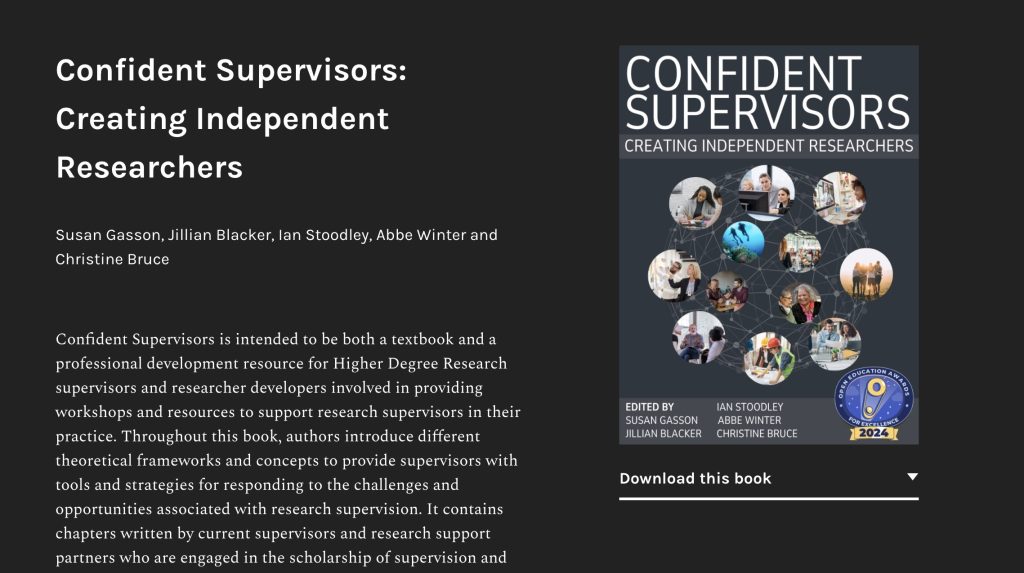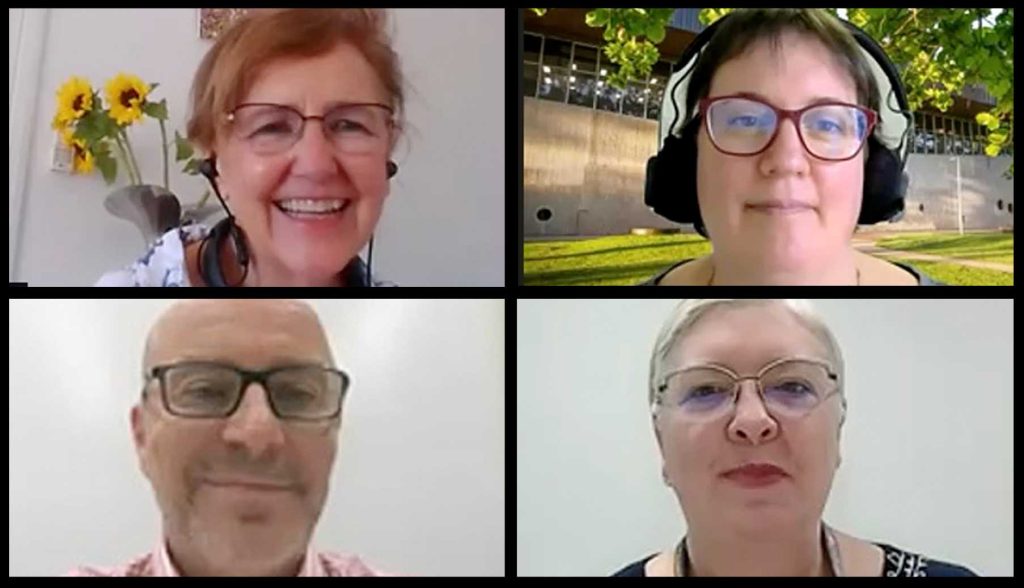There are five openings for Interns at Open Education Global between 2022 and 2023.
Two of these positions are Open Education Latin America (OE LATAM) internships, that will require Spanish-speaking individuals who are proficient in English. The work they will develop is in Spanish.
1. Tech Intern
The Tech Intern will work with the tech team on OE Global technology infrastructure, which is primarily based on Python and Django and other (mostly open) technologies. Some of the plans in the upcoming year include: Consolidating WordPress websites and migration to Wagtail CMS, updating Django-based Open Education Week website, and upgrading the CRM. This work will be open sourced, and the tech intern is welcome to use all the code and skills for future career development. OE Global will be happy to provide a reference upon successful completion of the internship. — Interest in Python and Django and eagerness to learn more is required. JavaScript skills are welcome, although not required. Interest in DevOps (Docker, CI/CD) is a plus. The OE Global team is around the world, mostly in EU / US time zones. We work asynchronously.
2. Communications and Community Engagement support
This role focuses on two interlinked tasks:
- Communications Support facilitates active engagement on social networks, websites, and forum platforms (such as OEG Connect) between the global education community and the OEGlobal community and its members. This will involve uploading, supporting, and engaging via communications campaigns on social media
- Community Engagement involves engaging OEGlobal members and the wider open education and open communities via one-on-one interactions and community-wide surveys to establish trends, needs, and blockages within the global open education community. It will involve sector research, community navigation, member profiling, survey creation, community interviews, and leading discussions on OEG Connect, etc. towards an annual open education ‘state of’ and ‘future trends’ report.
3. Open Education Language Support | Apoyo lingüístico de OEGlobal
Act as a language representative for OEGlobal. Assist with translation of communications (English-Spanish), network research, community navigation, starting and leading discussions on OEG Connect, etc.
Expected outcome – updated OE LATAM website and improved OEGlobal bilingual representation/participation.
Actuar como representante lingüístico de OEGlobal. Asistir con la traducción de comunicaciones (inglés-español), investigación de redes, navegación comunitaria, inicio y liderazgo de debates en OEG Connect, etc.
Entregable: actualización del sitio OE LATAM y representación/participación bilingüe en el sitio de OEGlobal.
4. OELATAM Curator and Report Writer | Curaduría de contenidos de Educación Abierta LATAM y elaboración de informe
Find, collect, and curate content and data on the Internet about open education initiatives, projects, and efforts in Latin-American to determine the current state of open education in the region.
Expected outcome: publish a Report on the State of Open in Latin America.
Necessary skills:
- Web navigator, understand Open and be well organized.
- Bilingual, Spanish-English
Responsable de encontrar, recopilar y seleccionar contenidos y datos en Internet sobre iniciativas, proyectos y esfuerzos de educación abierta en América Latina para determinar el estado actual de la educación abierta en la región.
Entregable: Informe sobre el estado del arte de la educación abierta en América Latina.
Responsabilidades:
- localizar y evaluar contenidos relevantes
- clasificar, organizar y estructurar los contenidos de manera significativa
- contextualizar la información encontrada para ayudar a representar el estado actual de la educación abierta en América Latina
- desarrollar, presentar y compartir un reporte final con los hallazgos
Habilidades:
- Conocimiento de educación abierta
- Experiencia y capacidad de investigación en Internet
- Bilingüe, español-inglés
5. OELATAM Tutorial Developer | Creación de tutorial de educación abierta para Latino América
Provide visual content and help develop a series of “How-to Open” tutorials in Spanish. Choose the best visual media for each lesson and plan, design, and create the resource.
Expected outcome: 10 lessons “How-to Open” Tutorial Series
Necessary skills:
- Strong visual communications background and understand Open.
- Bilingual, Spanish-English
Ayudar a crear una serie de tutoriales de cómo hacer educación abierta (How-to’s) en español aportando con apoyos visuales (gráficos y videos).
Entregable: 10 lecciones en una serie de tutoriales “Cómo hacer educación abierta”
Responsabilidades:
- Planificar, diseñar y crear medios visuales para cada lección
- Reutilizar contenidos y estandarizarlos con diseño y elementos visuales atractivos
Habilidades:
- Experiencia en comunicación visual (diseño y desarrollo de sitios web, producción de videos, ilustración y/o diseño gráfico)
- Experiencia en creación y actualización de sitios web (WordPress)
- Bilingüe, español-inglés
More information about the Internships
Pasantías en el OEGlobal
Description | Descripción
Interns are students, newcomers or practitioners in the open education field looking to gain experience by working on OEGlobal development and capacity building activities.
Los pasantes son estudiantes, recién egresados o profesionales en el campo de la educación abierta que buscan adquirir experiencia trabajando en actividades de desarrollo de capacidades en el OEGlobal.
Role / Activities | Rol / Actividades
Interns work on important OEGlobal strategic and operational activities. Connect with other field builders in dedicated OEGlobal field builders’ virtual space and through organized meetups.
Los pasantes trabajan en actividades estratégicas y operativas de OEGlobal. Se conectan con la red de impulsores del OEGlobal en espacios virtuales designados y a través de reuniones organizadas.
Expected outcomes | Expectativas
For Interns | Para los Pasantes:
The intern will:
- get regional and global recognition as an OEGlobal open education intern including listing on OEGlobal’s website
- gain experience in open education
- develop a network of contacts in the open education field
- build a base of professional experience supported by an OEGlobal letter of reference outlining their deliverables and outcomes at the end of their intern term
El pasante:
- obtiene reconocimiento regional y mundial como pasante de educación abierta de OEGlobal, incluyendo mención en el sitio web de OEGlobal
- acumula experiencia en educación abierta
- es parte de la red de educación abierta. Desarrollar relaciones con líderes, expertos e impulsores en el campo de la educación abierta
- construye una base de experiencia profesional respaldada por una carta de referencia de OEGlobal que describa sus entregas y resultados al final de su pasantía
For OEGlobal | Para OEGlobal:
The intern will:
- help advance an area of strategic or operational importance for OEGlobal
- bring fresh ideas and perspectives to OEGlobal work
- build and enhance OEGlobal capacity and reach
- meet with and actively communicate with other OEGlobal interns helping build a network of professional peers
El pasante:
- ayuda a avanzar en un área de importancia estratégica u operativa para OEGlobal
- aporta nuevas ideas y perspectivas al trabajo de OEGlobal
- crea y mejora la capacidad y el alcance de OEGlobal
- se reúne y comunica activamente con otros pasantes de OEGlobal para ayudar a construir una red de pares profesionales
Eligibility | Elegibilidad
- An intern is a 12 months, part time, entirely remote contractor.
- Job starts in July 2022
- Interns receive $5,000 USD
- Must have some experience or knowledge of open education
- Interns are not required to be OEGlobal members though preference will be given to interns coming from OEGlobal members.
- Interns are selected via application process in response to specific OEGlobal opportunities.
- Interns will have a direct reporting relationship to an OEGlobal staff member who will direct and supervise their intern work.
- Interns must have a computer and internet access.
- Duración de la pasantía: 12 meses
- Fecha de inicio, Julio 2022
- Remuneración: $5,000 USD
- El trabajo es de tiempo parcial y completamente remoto
- Se espera que los pasantes trabajen de manera autónoma (freelance) y no bajo contrato laboral con el OEGlobal
- No se requiere que los pasantes sean miembros de OEGlobal, aunque se dará preferencia a los solicitantes que provengan de instituciones miembros.
- Los pasantes se seleccionan sólo en respuesta a las oportunidades publicadas por el OEGlobal.
- Los pasantes se reportan directamente con un miembro del personal de OEGlobal quien dirige y supervisa su trabajo como pasante.


